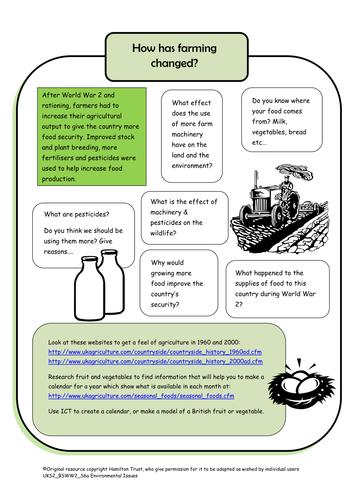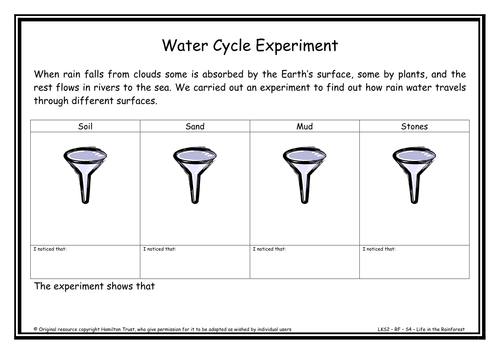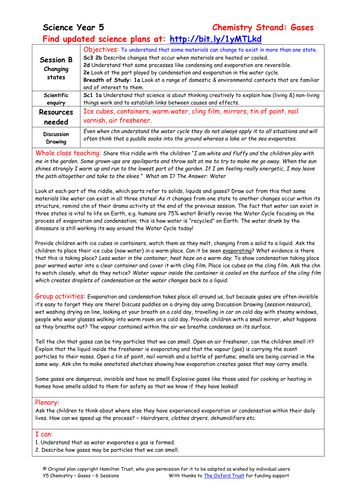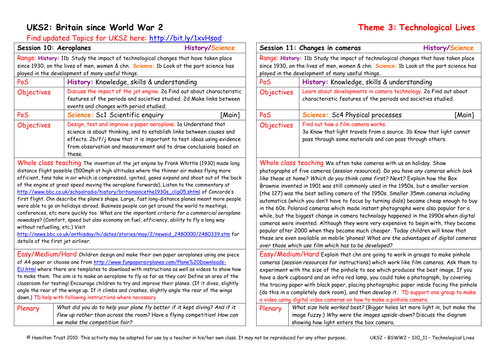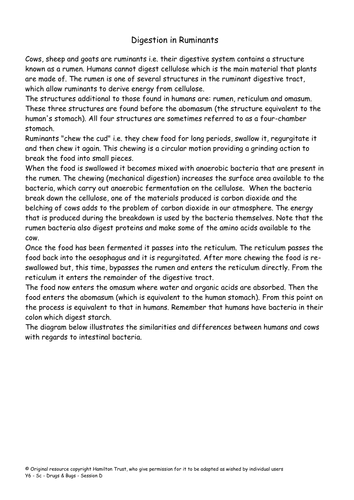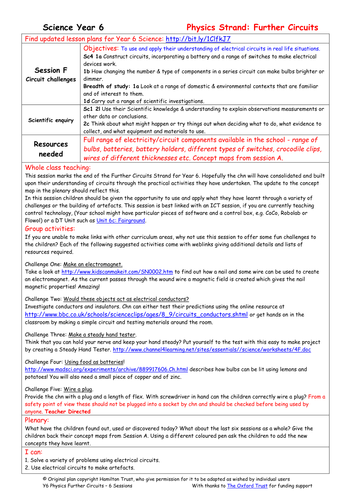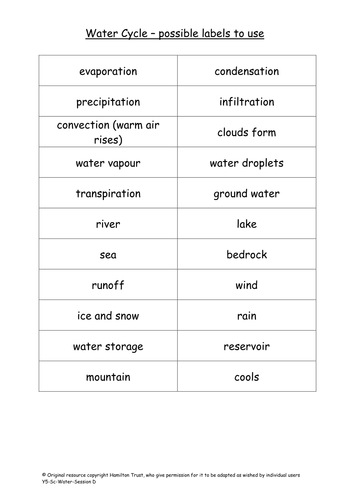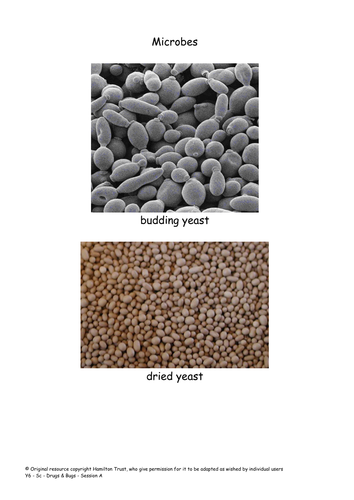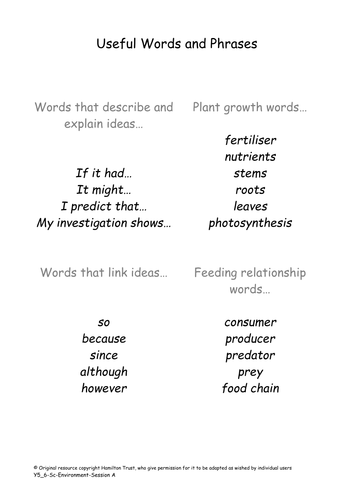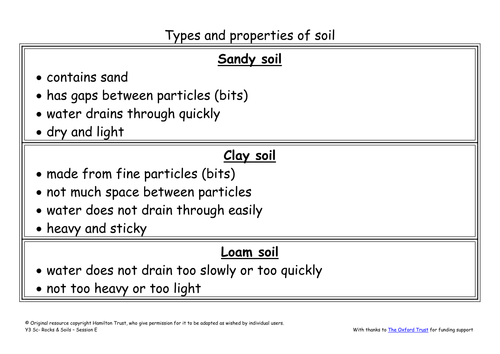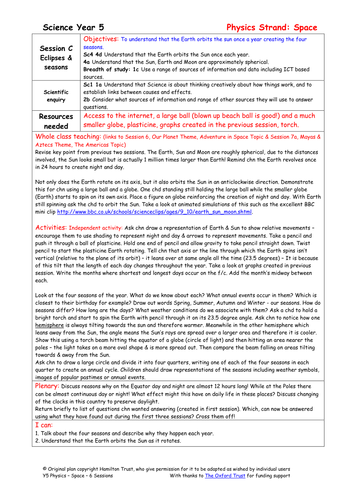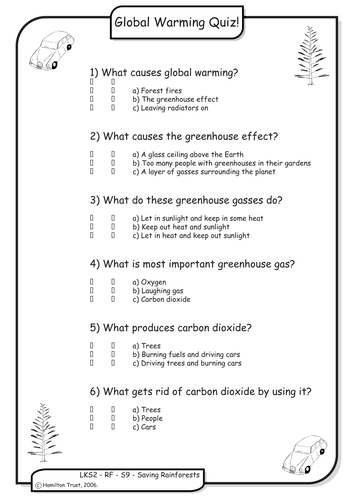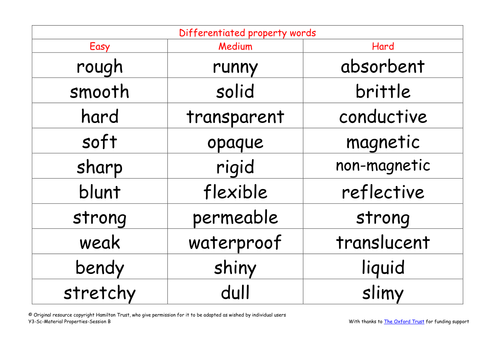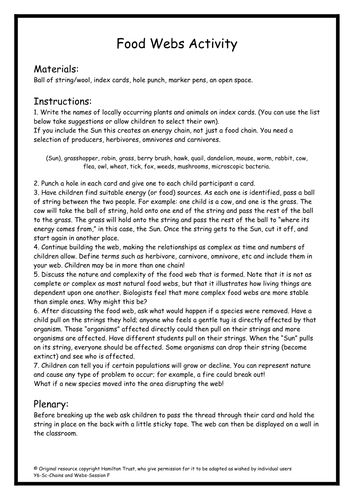
397Uploads
10041k+Views
11644k+Downloads
Elementary science

How Has Farming Changed?
After WW2 and rationing farmers had to increase production. Children discuss where food comes from, and their views on the use of heavy farm machinery and pesticides. Children make a model of a fruit/vegetable or create an ICT presentation showing seasonal availability.

Is it sinking in! Rain into Earth
In this session children find out how the rain drops that fall from the clouds get back to the rivers and seas so that the cycle can start again. Children test a variety of natural Earth surfaces to see which allows water to flow through the fastest.
Suitable for years 3 and 4.

Changing states
Water doesn’t just dry up… it changes state! In this session children investigate how water can exist in all three states and look for evidence of water as vapour, drawing diagrams to explain what is happening. Suitable for Year 5 pupils.

Aeroplanes
Children look at different aeroplanes, make paper aeroplanes and then see which flies the furthest.

Symbols
In this session symbols say it all! Children discover the conventions that are used in circuit diagrams before using them to create their own. Can they create working circuits from a diagram? Time to find out!
Suitable for Y6 pupils.

Useful micro-organisms
Discuss bacteria living in and on humans and compare our digestive system with that of ruminants. Find out how bacteria help us to recycle waste and make river water safe for us to drink. Visit the Microbe Zoo! Ask 'What does our skin do?' 'Is there life on Mars?'
Suitable for Y6 pupils.

Circuit challenges
In this session children apply their knowledge and understanding of circuits in other subject areas or through a variety of practical challenges. Iron nails, lemons and the steadiest of hands are needed in this session!
Suitable for Y6 pupils.

Circuit revision
In this the first of six sessions the children get some hands on experience and revision of what they already know through a circus of circuit activities.
Can they complete and repair circuits? What dangers does electricity pose?
Suitable for Y6 pupils.

Water cycle
Children explain how evaporation and condensation are involved in the water cycle and describe all the water cycle processes. Identify the different forms of water that are seen in various weather conditions and the different clouds that are seen in our skies.
Suitable for Y5 pupils.

Micro-organisms
Introduce children to bacteria, viruses and fungi as micro-organisms. They are living organisms and are very small. Investigate how the numbers of bacteria grow by simple division and gain an understanding of their size compared to a metre.
Suitable for Y6 pupils.

Separate solids
In this session children start by separating what they already know from what they want to find out, then start to separate materials using sieves of different sizes and magnets. They find out that these methods have real life applications.
Suitable for Y6 pupils.

Chromatography case
A distressing message has been left in the classroom; someone thinks that Year 6 need less playtime and more homework!
The children spring into action using chromatography to identify the pen used and its owner!
Suitable for Year 6 pupils.

Magnetic Materials
Following the discussion about types of material in session 6, chn move on to explore magnetism. They look at which solid materials are magnetic and experiment to find out. They record their results in a systematic way.
Suitable for years 3 and 4.

Plant growth
Children receive a letter requesting help from the Native Nursery. Children must design and set up experiments to find the best conditions for growing seeds. They will monitor progress and report their findings in Session F.
Suitable for Y5/6 pupils.

Energy
This session we consider how we are using up fossil fuels. How did we heat our homes and cook in the past? Discuss renewable energy and any local schemes to try and use more renewable energy. Challenge children to make a solar oven and cook something with it!

Properties of soil
Discussing how soil is formed and why it is important to look after it. Find answers to questions on the web. Closely observe a soil sample and record what is found. Look at and draw a soil profile. Discuss erosion.
Suitable for Y3 pupils.

Eclipses and seasons
The Sun is a million times larger than Earth so how can its rays sometimes be obscured by the much smaller Moon? Children discover how eclipses are created and how the Earth’s tilt on its axis creates seasons.
Suitable for Year 5 pupils.

Effect of Global Warming
In this session children take a closer look at the causes of global warming and look at the long term effects. How can they do their part to reduce the greenhouse effect? They put it to the test in the Great Greenhouse Effect Quiz!

Everyday uses of materials
Make a water container out of a paper towel to get children thinking about the importance of understanding material properties. Look closely at some great new vocabulary to describe materials and make a large glossary for the classroom.
Suitable for Y3 pupils.

Food webs
A wonderful food web is weaved in this session as children create more complex feeding relationships. Through practical activity they discover the impact that subtle changes can have on the whole web!
Suitable for Y6 pupils.

